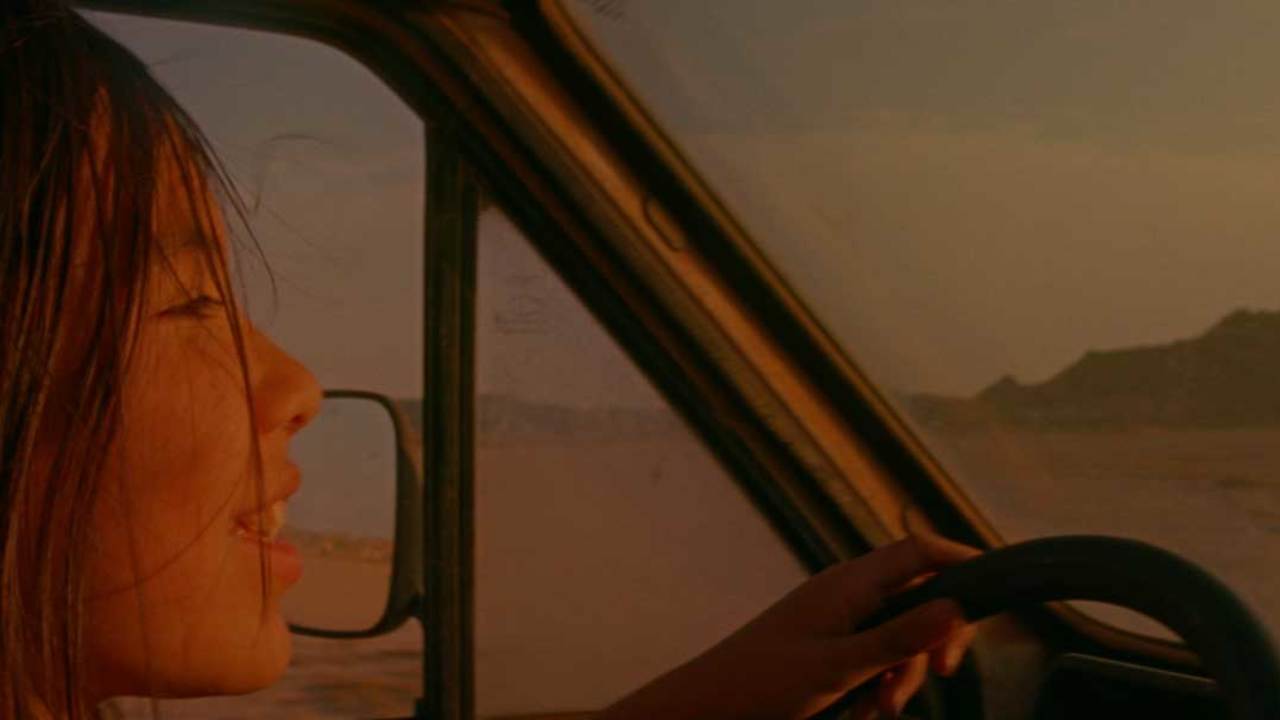A girl called Moon adventures in a world without adults in Mare’s Nest, the latest feature by acclaimed British artist and filmmaker Ben Rivers.

Responding to a world that seems evermore surreal, disastrous, and doomed by the day, the latest speculative feature by British artist and filmmaker Ben Rivers immerses us in an unsettling natural terrain — equal parts bucolic and barren — entirely devoid of adults.
A return of sorts to Rivers’ 2008 short film Ah, Liberty!, also shot exclusively with children and inspired by the filmmaker’s childhood spent in a small village where detritus doubled as playground, in Mare’s Nest we follow a girl called Moon (an astonishing Moon Guo-Barker), who adventures alone through uncanny landscapes, encountering a turtle and other children along the way.
Untethered, her perambulatory freedom leads to equally expansive lines of enquiry. While fictional and the closest Rivers has hewed to the genre in years, what transpires harbours compelling resonances with our moment of great uncertainty, invoking philosophical and contemporary issues of climate catastrophe, communication, and human division.
Many scenes are wordless and gestural in nature, yet the artist’s long-held fascination with language returns, including a remarkable extended scene adapted from Don DeLillo’s one-act play The Word for Snow. Shot in a mix of colour and black-and-white Super 16mm, with Rivers’ typically sterling eye, the images we see are supernal and consistently imbued with wonderment.
An important contribution to work made with children — Rivers has noted Alanis Obomsawin and Gunvor Nelson as explicit influences — and a meaningful exploration of the ways in which stories can be formed and transmitted, Mare’s Nest is a film of plants and animals, of car graveyards and caves, of games and imagination, and, ultimately, a film of great beauty and mystery.
ANDRÉA PICARD
Screenings
Scotiabank 9
TIFF Lightbox 3
TIFF Lightbox 4